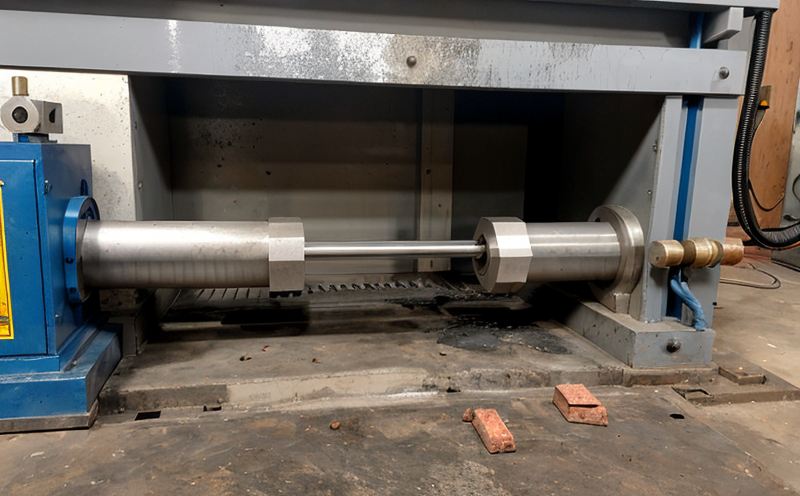ASTM D412 Tensile Properties of Rubber
The ASTM D412 Tensile Properties of Rubber test is a fundamental procedure utilized to determine the tensile strength, elongation at yield, and maximum load capacity of rubber materials. This service is critical in quality management, compliance verification, and research & development (R&D) for industries that rely on elastomeric properties.
The ASTM D412 standard specifies the procedures for testing the tensile properties of vulcanized or thermoplastic rubbers. The test involves stretching a specimen to failure under controlled conditions until it breaks. This service is particularly useful in sectors such as automotive, aerospace, and footwear where material integrity under stress is paramount.
The primary focus on rubber materials highlights their unique mechanical properties which are crucial for applications requiring flexibility, elasticity, and resilience. The testing process aims at providing accurate data that can be used to improve product design and ensure compliance with industry standards.
During the test, the specimen undergoes a series of steps including preparation, mounting onto grips, and subjecting it to a controlled rate of elongation until failure. This method allows for precise measurements of key parameters like tensile strength, modulus at yield, and elongation at break.
The results from this testing are invaluable in ensuring the quality and performance of rubber components used across various industries. Compliance with international standards such as ASTM D412 is essential to maintain product integrity and ensure safety for end users.
| Parameter | Description |
|---|---|
| Tensile Strength (psi) | The maximum stress a material can withstand before breaking. |
| Elongation at Yield (%) | The amount of strain in the specimen when it yields under load. |
| Modulus at Yield (psi) | The slope of the linear portion of the stress-strain curve up to yield point. |
| Specimen Preparation | Description |
|---|---|
| Cross-sectional Area | Ensuring uniform thickness and consistent geometry. |
| Length-to-Diameter Ratio | Maintaining a specified ratio to achieve accurate results. |
The testing process also involves the use of specialized equipment designed to apply controlled forces while monitoring displacement. This ensures that the data collected is reliable and representative of real-world conditions. Reporting from this test typically includes detailed metrics along with graphical representations such as stress-strain curves to facilitate easy interpretation by stakeholders.
Industry Applications
- Automotive: Ensuring the durability of rubber components like hoses, belts, and seals.
- Aerospace: Verifying the integrity of elastomeric parts in high-stress environments.
- Footwear: Evaluating the performance of rubber soles under various loading conditions.
| Industry | Main Application |
|---|---|
| Automotive | Durability and safety of rubber components in harsh environments. |
| Aerospace | Elastomeric parts' integrity under extreme conditions. |
| Footwear | Performance evaluation of rubber soles for comfort and durability. |
Eurolab Advantages
We offer a comprehensive approach to ASTM D412 testing, ensuring that our clients receive accurate and reliable results. Our state-of-the-art facilities are equipped with the latest equipment, allowing us to provide precise measurements and detailed reports.
- Highly skilled technicians with expertise in rubber testing.
- Access to advanced analytical instruments for comprehensive analysis.
- Compliance with international standards ensuring accuracy and reliability of results.
- Prompt turnaround times for quick decision-making.
The precision and consistency of our tests make us a trusted partner for industries reliant on rubber materials. We ensure that every test is conducted under controlled conditions, providing data that can be relied upon to improve product performance and safety.
International Acceptance and Recognition
The ASTM D412 standard is widely recognized globally for its reliability and accuracy in assessing the tensile properties of rubber materials. This service is accepted by regulatory bodies worldwide, ensuring that results obtained are valid across different jurisdictions.
Compliance with this international standard is essential to maintain product integrity and ensure safety for end users. Our laboratory adheres strictly to these standards, guaranteeing consistent and accurate test results. The use of internationally recognized standards also enhances the credibility of your products in both domestic and export markets.





